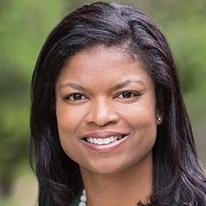This past summer, the outgoing president of the American Bar Association stated that “I have grown weary of discussing statistics that have not changed in decades and wondering why strategies used have not made our profession fully inclusive.” The data shows why the leader of the ABA is frustrated. Blacks are only 7 percent of the students admitted to the nation’s law schools. They are only 4.3 percent of the associates and 2 percent of the partners at U.S. law firms.
 Adina Sterling, an assistant professor at the Graduate School of Business at Stanford University, believes that increased mobility in the legal workforce is one reason for the low-level of racial diversity in the profession. She notes that law firms used to hire associates right out of law school and after several years kept the top performers. But now law firms are more apt to hire top lawyers from competing firms. Thus, networking has become an increasingly important phenomenon in the legal labor market and Black attorneys tend to have less access to these social networks.
Adina Sterling, an assistant professor at the Graduate School of Business at Stanford University, believes that increased mobility in the legal workforce is one reason for the low-level of racial diversity in the profession. She notes that law firms used to hire associates right out of law school and after several years kept the top performers. But now law firms are more apt to hire top lawyers from competing firms. Thus, networking has become an increasingly important phenomenon in the legal labor market and Black attorneys tend to have less access to these social networks.
Dr. Sterling and colleagues examined what happened to 1,400 attorneys who became unemployed after their firms dissolved in the wake of the 2008-09 recession. They found that White lawyers were significantly more likely than Black lawyers to find a new job and White lawyers were the most likely to land positions at the most prestigious law firms.
Dr. Sterling states that “Black lawyers were not as well connected in their firms. So when disaster hit, they had less social support and fewer resources to draw on.”
Dr. Sterling is a magna cum laude graduate of Ohio State University, where she majored in chemical engineering. She holds a Ph.D. in organization and management from Emory University. She joined the faculty at Stanford in 2015 after teaching at Washington University in St. Louis.
The study, “Career Mobility and Racial Diversity in Law Firms” is a chapter in the book Diversity and Practice: Race, Gender, and Class in Legal and Professional Careers (Cambridge University Press, 2016).










